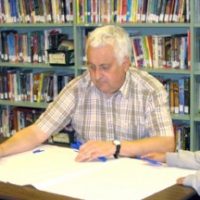
Projects
Parents As Literacy Supporters (PALS)
www.lerc.educ.ubc.ca/fac/anderson/pals/
PALS is a culturally responsive family literacy program for parents and their four- and five-year-old children developed by Jim Anderson, UBC and Fiona Morrison, Primary Consultant, Langley School District. PALS is currently in operation in 11 school districts in British Columbia, in the Northwest Territories and in Toronto. To ensure that the program meets the needs of families and the community, parents and teachers were involved in conceptualizing the program and in identifying topics about which they wanted to learn more.
PALS consists of 10 to 12, two and one-half hour sessions which occur approximately every two weeks. Topics include “Learning to Read”, “Learning the ABCs”, “Riddles, Raps and Rhymes”. Each session begins with participants and facilitators sharing a light breakfast or lunch. The topic of the session is then introduced and parents share their knowledge and insights. Then, parents proceed to the kindergarten (or preschool) classroom where they work with their children for about an hour on activities related to the topic of the day. Afterward while the children are at recess, parents are provided with an opportunity to discuss what they observed as they worked with the children. They are then provided with a high-quality children’s book and, on occasion, they make an educational game or activity to take home.
Selected Publications
Technical Reports
Anderson, J., Friedrich, N., & Kim, J. (2011). Implementing a bilingual family literacy program with immigrant and refugee families: The case of Parents As Literacy Supporters (PALS). Vancouver, BC: Decoda Literacy Solutions. Available at: http://www.decoda.ca/wp-content/uploads/PALS-in-Immigrant-Communities-Research-Report-Feb-2011-2.pdf
Glickman, V, Anderson, J., Anderson, A., Hawkey, C., & Smythe, S. (2011). Literacy Now and district literacy initiatives: Connecting loosely coupled community entities. Vancouver, BC: Decoda Literacy Solutions. Available at: https://educ-lled2016.sites.olt.ubc.ca/files/2018/02/CLPP-Report-Feb-11-2011-002.pdf
Anderson, J., Purcell-Gates, V., Jang, K., & Gagne, M. (2010). Implementing an intergenerational literacy program with authentic literacy instruction: Challenges, responses, and results. Ottawa, ON: Canadian Council on Learning. Available at: https://educ-lled2016.sites.olt.ubc.ca/files/2018/02/201009AndersonPurcell-GatesFullReport.pdf
Publications

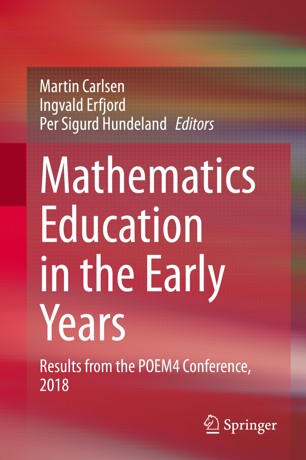
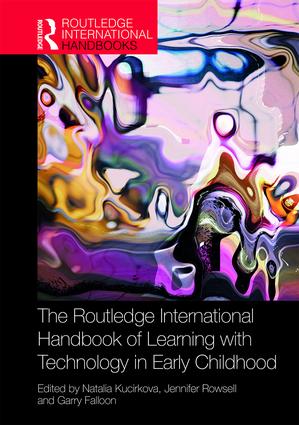

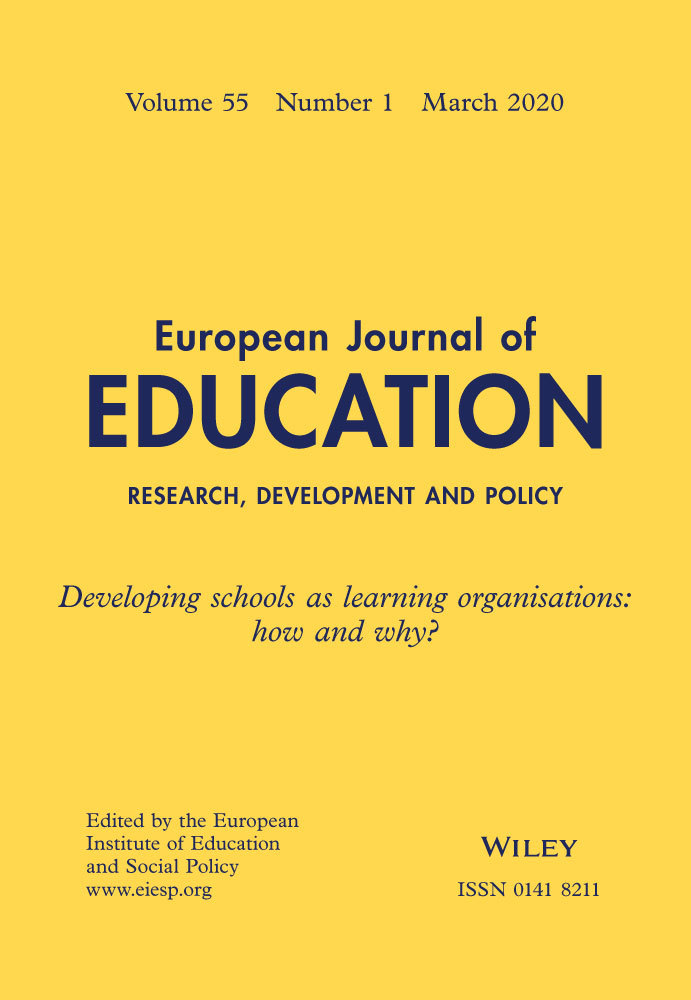


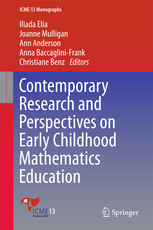



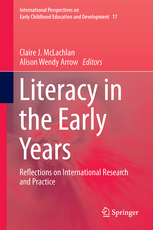
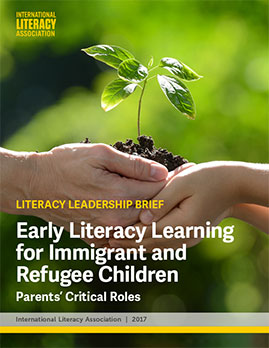
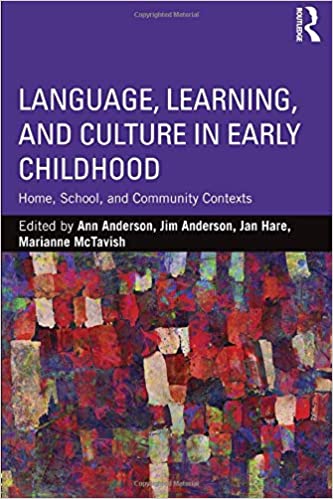

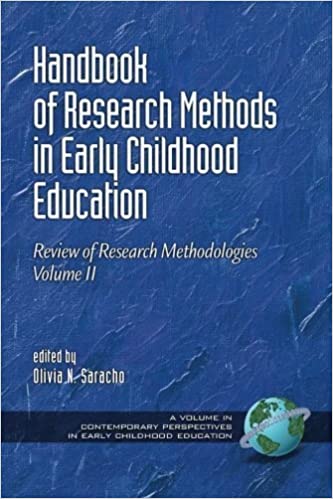
Anderson, A., & Anderson, J. (2014). Parent-child mathematics: A study of mothers’ choices. In C. Nicol, P. Liljedahl, S. Oesterle, & D. Allen (Eds.), Proceedings of the 38th Conference of the International Group for the Psychology of Mathematics Education and the 36th Conference of the American chapter of the Psychology of Mathematics Education, Volume II (pp. 33-38). Vancouver, BC: International Group fr the Psychology of Mathematics.
Anderson, A., & Anderson, J. (2014). Young children’s learning in the context of family and community. The Morning Watch, 41 (3-4), 1-3. Invited article; Special 40th Anniversary Issue.
Anderson, A., Anderson, J., Hare, J., & McTavish, M. (2014). Research with young children and their families in aboriginal, immigrant and refugee communities. In O. Saracho (Ed.), Handbook of research Methods in early Childhood Education, Volume II (pp. 115-145). Charlotte, NC: Information Age Publishing.
*Friedrich, N., Anderson, J., & Morrison, F. (2014). Culturally appropriate pedagogy in a bilingual family literacy program. Literacy, 48 (2), 72-79.
Purcell-Gates, V., McTavish, M., Lenters, K., & Anderson, J. (2014). Working with different cultural patterns and beliefs: teachers and families learning together. Multicultural Education, 21 (3/4), 17-27.
Anderson, A., Anderson, J., *Nichols, L. (2013). Through a rear-view mirror: Families retrospectively evaluate a family literacy program twenty years later. The School Community Journal, 23 (2), 33-53.
Anderson, J., Moffatt, L., *McTavish, M., & Shapiro, J. (2013). Thinking critically about early childhood language education: Socio-cultural Perspectives. In O. Saracho & B. Spodek (Eds.), Handbook of Research on the Education of Young Children/3ed (pp. 117-134). New York: Routledge.
Anderson, A., Anderson, J., Lynch, J., Shapiro, J., & *Kim, J. (2012). Extra-textual talk in shared book reading: A focus on questioning. Early Child Development and Care, 182, 9, 1139-1154.
Anderson, A., & Anderson, J. (2012). Listening to families’ voices: Parents look back at a family literacy program. In A. Kelly, B. Dwyer, G. Mehigan, & G. Watson (Eds.), Creating multiple pathways to powerful literacy in challenging times (pp.34-41). Dublin: Reading Association of Ireland.
Anderson, J., Anderson, A., *Friedrich, N., & *Kim, J. E. (2012). Taking stock of family literacy: Some contemporary perspectives. In K. Pahl & J. Rowsell (Eds.), Major works in early childhood literacy, Volume II (pp.219-238). London: Sage [reprint].
Anderson, J., Purcell-Gates, V., Lenters, K., & McTavish, M. (2012). Real-world literacy activity in pre-school. Community Literacy Journal, 8,2, 75-95.
Anderson, J., Anderson, A., & Morrison, F.(2012).Working in diverse communities: A social capital perspective of family literacy programsIn B. W. Toso (Ed.), Proceedings of the 2012 National Conference on Family Literacy Research Strand (pp. 7-17). University Park, PA: Goodling Institute for Research in Family Literacy, Pennsylvania State University.
Purcell-Gates, V., Anderson, J.,* Jang, K., & *Gagne, M., Lenters, K., & McTavish, M. (2012). Measuring situated literacy activity: Challenges and promises. Journal of Literacy Research, 44, 4, 132-141.
Anderson, J., *Friedrich, N., & *Kim, J. (2011). Implementing a Bilingual Family Literay Program with Immigrant and Refugee Families: The Case of Parents As Literacy Supporters (PALS). Vancouver, BC: Decoda Literacy Solutions. Available at: http://www.decoda.ca/wp-content/uploads/PALS-in-Immigrant-Communities-Research-Report-Feb-2011-2.pdf
Anderson, J. & Morrison, F. (2011). Learning from/with immigrant and refugee families in a family literacy program. In A. Lazar & P. Schmidt (Eds.), Practicing What We Teach How Culturally Responsive Literacy Classrooms Make a Difference (pp. 30-38). New York: Teachers College Press.
Gagne, M., *Collier, D., Anderson, J., & Purcell-Gates, V. (2010). Literacy for Life: An Intergenerational Literacy Program (A Handbook for Practitioners). Ottawa, ON: Canadian Council for Learning. Available at: https://educ-lled2016.sites.olt.ubc.ca/files/2018/02/201009AndersonPurcell-GatesGagneCollierHandbook.pdf
Anderson, J., Anderson, A.,* Friedrich, N. & *Kim, J. (2010; invited article for special 10th anniversary issue).Taking stock of family Literacy: Some contemporary perspectives. Journal of Early Childhood Literacy, 10, 33-53.
*Anderson, L., & Anderson, J.(2010). Barney & Breakfast: Messages about food and eating in preschool TV shows. Early Child Development and Care, 180, 10, 1323-1336.